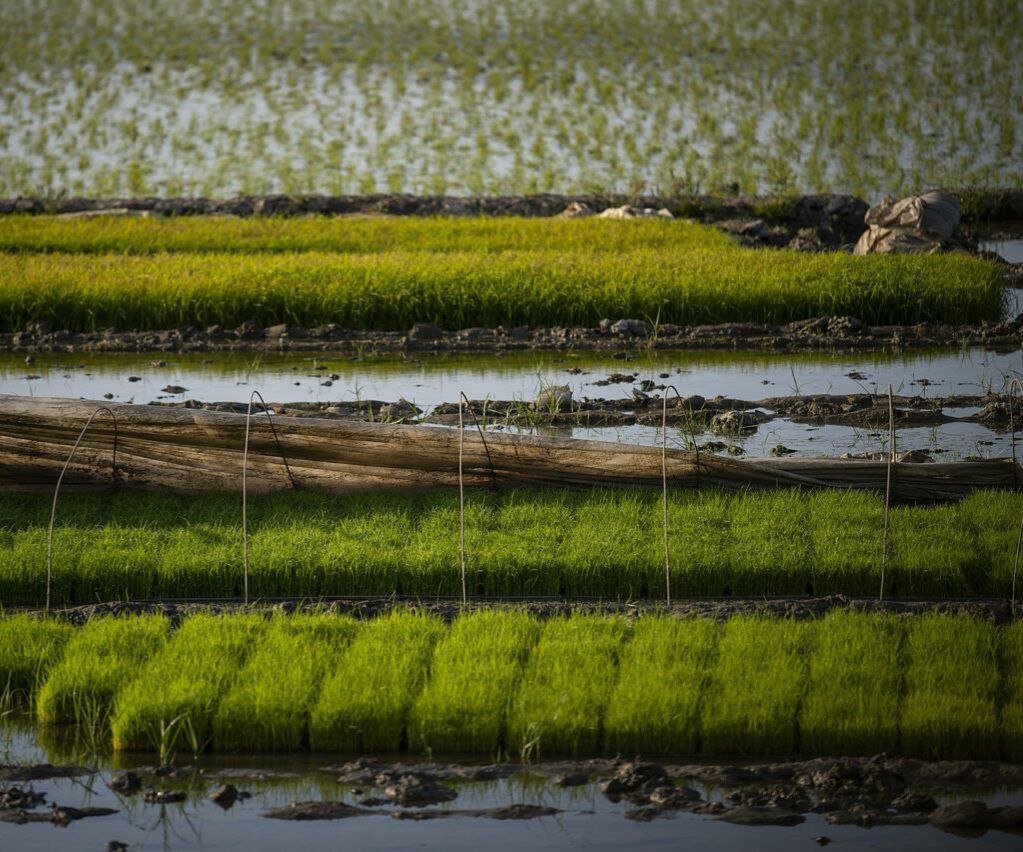Wetland conservation project lowers irrigation water consumption official
Wetland conservation project lowers irrigation water consumption: official
TEHRAN – The conservation project of Iranian wetlands has resulted in a 27.5 percent decrease in irrigation water consumption while increasing agricultural products by 22.5 percent, an official with the Department of Environment (DOE) has said.

“Currently, 49 wetlands, covering around 22 percent of the whole wetlands in the country, are being conserved in the form of native ecosystem management partnership,” IRNA quoted Mehri Asna-Ashari as saying
She made the remarks on Monday at the meeting of the steering committee of the international project for the conservation of Iranian Wetlands.
Since 2021, the conservation project has been carried out in three wetlands including Shadegan in Khuzestan province, Bakhtegan in Fars province, and Urmia in West Azarbaijan province, the official noted.
Sustainable farming methods were implemented and 2,433 farmers were trained. By February 2024, the results showed that average agricultural production increased by 22.5 percent, whereas irrigation water consumption reduced by 27.5 percent. In addition, the consumption of chemical fertilizers decreased by 25 to 30 percent. Consequently, the income of each farmer increased by 14 percent.
The establishment of 26 non-governmental organizations (NGOs), and 181 livelihood support groups, and the implementation of alternative livelihood plans in 44 villages are some of the other achievements of the project, she added.
The official went on to say that “in 2024, the project was implemented with a budget of 678,000; we hope the project further yields positive outcomes with the allocation of the new budget. Of course, the financial contribution of the government was received with a little delay and insufficiently.
To implement the project more successfully, the Ministries of Agriculture, Energy, Interior, Foreign Affairs, as well as Planning and Budget Organization, and the United Nations Development Program are required to cooperate with each other,” Asna-Ashari noted.
UNDP, Japan to enhance wetland management in Iran
The UNDP in the Islamic Republic of Iran has received a generous contribution of JPY 690,000,000 from the Government of Japan to enhance wetland management and strengthen climate resilience in Lake Urmia, Shadegan, Parishan, and Anzali wetlands.
Japan has been a key partner of the Government of Iran and UNDP since 2014 in supporting sustainable natural resource management in wetland basins and diversifying livelihoods of communities reliant on wetlands.
During the signing ceremony on 1 December 2024, the Government of Japan and UNDP signed exchange of notes to implement “The Project for Developing Conservation System of Wetlands in Lake Urmia and Other Wetlands including their Surrounding Communities.” The project will be jointly implemented with the Department of Environment and in collaboration with the Food and Agriculture Organization of the United Nations (FAO) from 2024 to 2028.
The project will build on the past achievements and will accelerate efforts to successfully scale up piloted models and practices. By focusing on sustainable agriculture and alternative livelihoods that are adapted to climate change, the initiative seeks to create long-term benefits for local communities while preserving the biodiversity of wetlands as vital ecosystems.
“Over the past ten years, the unwavering support from the People and the Government of Japan has positively impacted agricultural productivity and enhanced livelihoods in target communities. In the next four years, we will continue promoting innovative, water-efficient agricultural practices, while emphasizing scaling up for a better future for all,” said Gulbahor Nematova, UNDP Iran Deputy Resident Representative.
H.E. Mr. Tsukada, the Ambassador of Japan to Iran stated: “Iran has 26 valuable wetlands listed under the Ramsar Convention, including Lake Urmia. These wetlands, which are home to diverse species and migratory birds, must be conserved in cooperation with the international community.
Over the past 10 years, Japan has provided support for Lake Urmia conservation, but in order to further restore the wetland, it is essential to manage uncontrollable water extraction, develop an irrigation system that appropriately respond the climate change, and create sustainable industries such eco-tourism.
In addition to directly tackling these challenges, this project’s knowledge and technologies will be utilized in other wetlands in Iran.
We hope that the new project signed today will contribute to the environmental protection and economic development of the areas around the wetlands.”
MT/MG
source: tehrantimes.com